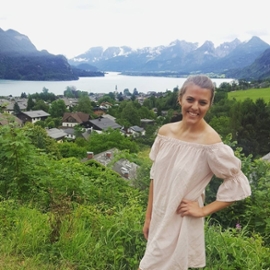Liberia Proposal
With the Myanmar projects winding down, I have started working on other projects. The office is a little chaotic right now because we have three major proposals all due at the beginning of next week. I jumped back on the Liberia project to help my coworkers write it in time for the Monday deadline—they have had less than a week to write the entire proposal.
Writing this proposal has been a really interesting experience because this is the first time I have been able to see how the whole process of applying for grants works. When writing my first proposal for Southern Africa, there was no deadline because the proposal was unsolicited, meaning we were requesting a grant without the organization putting out any call for proposal submissions. We therefore had more freedom with the Southern Africa proposal in terms of budget and activities than we do with this one.
For the Liberia proposal, more research and outreach were required in order to meet the technical details in the Notice of Funding Opportunity from the funder. To make sure we are well-informed and prepared when we submit the proposal, we have been partnering with two IBJ contacts who are experts on the Liberian criminal justice system. They have been a tremendous help to us in writing the proposal by providing their knowledge about the challenges NGOs face in Liberia and ways in which NGOs can successfully operate there with the support of the government—a crucial component not only of the proposal but also IBJ's mission generally.
Before this project, I don't think I understood fully how technical and intensive writing proposals can be. It requires a combination of creativity, persuasive writing, technical knowhow, and subject-specific expertise. The Liberian proposal has presented some unique challenges. For example, a large part of the proposal call discusses judicial reform in rural areas of Liberia, where there are unclear boundaries between the jurisdiction of traditional leaders and the courts, but all of the court officials are centered in Monrovia. There are other boundaries to access to formal justice in rural Liberia as well: lack of reliable public transportation, a six-month rainy season which all-but precludes transportation to Monrovia, public defenders who are relatively well-paid but unmotivated to represent indigent clients, and a poor population that cannot afford adequate legal representation.
All of these factors are things that must be addressed and accounted for before we can even begin to tackle the objectives outlined in the call for proposals.
With each new project I take on at IBJ, I become invested in the success of the countries where the projects are based. When I was working on Myanmar training materials, I learned so much about the country that I began to have a better understanding of the country and its people. I look forward to hearing about the work of my Burmese neighbors in years to come. Working on the proposal for Southern Africa, I became invested in the stability and progress of the entire region, recognizing that this progress is only possible if we work in partnership with individuals from countries in the region. Now, working on this proposal, I am rooting for Liberian lawyers who are making strides toward judicial reform in their country.
Sharing in the challenges and successes of these countries has been my favorite part of working for IBJ.


Oh, I almost forgot! Jenn and I went to Salzburg, Austria and Munich, Germany over the weekend—my other favorite part of working for IBJ: proximity to so many amazing places.